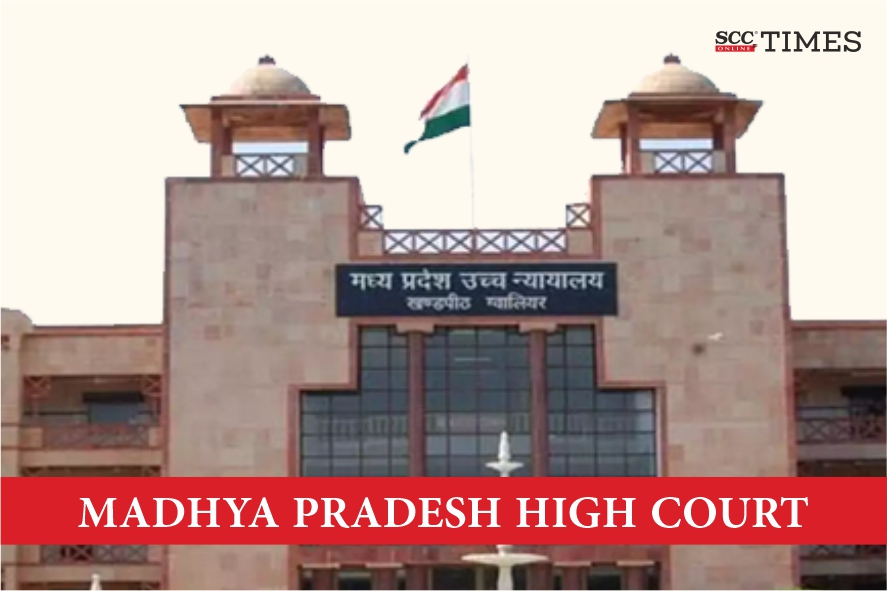Madhya Pradesh High Court: In a writ petition filed under Article 226 of the Constitution of India challenging the order by which the petitioner’s candidature for the post of Assistant was rejected on the grounds of unsuccessful biometric verification conducted by Tata Consultancy Services (TCS), the agency appointed by Life Insurance Corporation of India (LIC), a single-judge bench of Subodh Abhyankar, J., held that failure of a machine cannot be the basis to deny someone’s legitimate claim when identity is otherwise verifiable and no mala fide is alleged. The Court quashed the impugned rejection order and directed LIC to verify the petitioner’s identity through documentary evidence and issue the appointment letter within four weeks
In the instant matter, the petitioner applied for the post of Assistant at Life Insurance Corporation of India (LIC) in response to an advertisement dated 17-09-2019. The recruitment process included biometric verification, to be conducted by Tata Consultancy Services (TCS). The petitioner’s biometric verification succeeded at the time of entry during the main examination on 22-12-2019, but failed at the time of exit.
Despite being shortlisted after the exam, the petitioner’s candidature was rejected, vide order dated 29-02-2020, based on a subsequent biometric mismatch during document verification on 24-01-2020. The petitioner was made to sign a declaration acknowledging that his thumb impression could not be verified due to skin issues.
The petitioner contended that the rejection was based purely on a technical error. It was contended that the biometric verification succeeded at the time of entry and failed only at the exit, and again during document verification due to skin issues. It was contended that the petitioner was denied access to the TCS report, which was relied upon in the rejection.
However, respondent argued that biometric verification was a precondition and its outcome was final as per Clause 11 of the advertisement. Further it was argued that the petitioner ought to have made TCS a party since it was the verifying authority.
The Court asserted that TCS is merely an executing agency and was assigned to carry out the biometric verification of the candidates appearing in the examination at the instance of LIC. The Court stated that LIC, being the principal, was responsible for communicating the results and decisions, hence, TCS was not a necessary party.
“LIC was the master, whereas TCS was the servant, and if any order is communicated by TCS to its master i.e., LIC, it was the duty of the LIC to communicate the same to the petitioner, hence, TCS is certainly not a necessary party to the lis.”
The Court found non-furnishing of the TCS report to be a serious lapse. Despite referring to the TCS report in the impugned order, LIC neither shared it with the petitioner nor filed it in court. The Court noted that LIC failed to furnish the TCS report that formed the basis of rejection and the same amounts to a breach of the principles of natural justice.
“It is surprising to note that the LIC did not keep a copy of the report… Thus, non-furnishing of the copy of the report… has led to violation of principles of natural justice and has prejudicially affected the petitioner’s interest.”
The Court criticised the mechanical application of biometric verification results and emphasised that technological tools are not infallible as such a condition “does not stand the test of judicial scrutiny and of reasonableness.” The Court opined that while biometric verification is a modern tool to ensure transparency in recruitment, it cannot override basic principles of justice. Relying on the principle that “procedure is the handmaid of justice, not its mistress”, the Court emphasised that a person’s “legal and fundamental right cannot be curtailed or side-lined only on account of failure of a machine to recognize him.” The Court held that identity verification should be supplemented by alternative documents such as Aadhaar, PAN, Driving License, etc., especially when there is no allegation of fraud or impersonation.
“It is true that the biometric verification process is necessary nowadays to eliminate any discrepancy in the record, and to ensure free and fair process of selection, however, it is also true that biometric verification is not always successful in eliminating the discrepancies, like in the present case, and there are occasions when biometric verification of a candidate cannot be done due to myriads of reasons, beyond the control of the parties.”
The Court held that Court such condition that biometric verification by the TCS would be binding on the petitioner, does not stand the test judicial scrutiny and of reasonableness, and is liable to be quashed.
The Court allowed the petition and quashed the impugned rejection order dated 29.02.2020. The Court directed LIC to verify the petitioner’s identity through documentary evidence, issue the appointment letter within four weeks and grant all consequential benefits except monetary benefits.
[Vinod Kumar Meena v. LIC, 2025 SCC OnLine MP 2859, Decided on 25-03-2025]
Advocates who appeared in this case :
Shri Raghvendra Singh Raghuvanshi, Counsel for the Petitioner
Ms. Jyoti Tiwari, Counsel for the Respondent








Very valuable judgement.